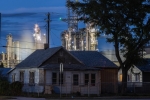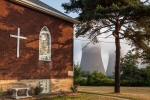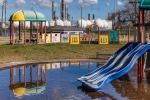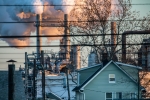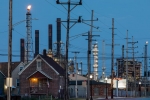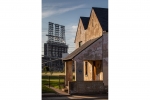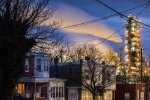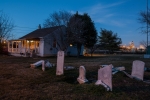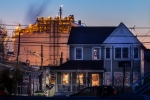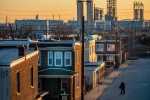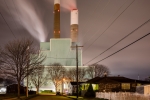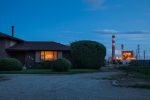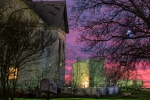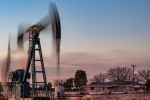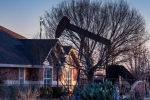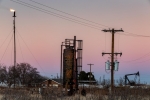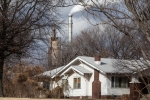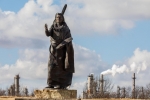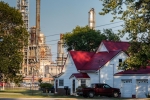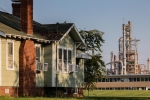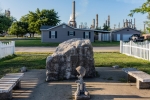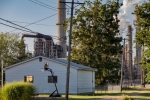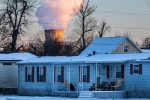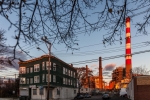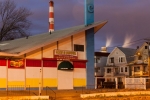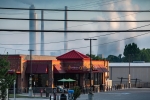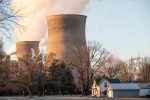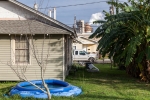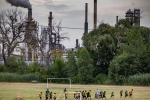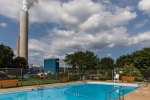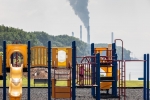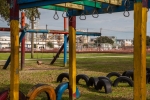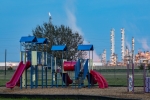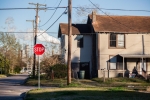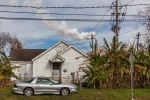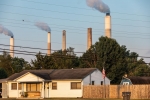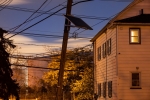The series Our Neighborhood juxtaposes sites of residential life in cities and towns across the US from Texas to Pennsylvania, with the infrastructure of the petrochemical industry. If your house is near an oil or gas well, a power plant or a refinery, you hear it, you smell it, you know it is dangerous. It is however familiar. You are used to it. You accept it because either you have no choice or it is your best choice. Either your grandparents built the house when they immigrated from Poland or Mexico or this neighborhood is actually better than some others you can afford. The sign “Poison Gas” somehow does not mean what it says and you put it out of your mind. You are resigned to the dangers that threaten your future in exchange for a feeling of normalcy, for convenience, for having a roof over your head right now.
We Americans all live in this house. This is our neighborhood, our home. Due to innovations in hydraulic fracturing, the US is now the largest global producer of oil and gas, surpassing both Saudi Arabia and Russia, at over 13 million barrels per day. The oil and gas business represents about 8% of US GDP with over 10 million employees. At the same time, the burning of fossil fuel is threatening to destroy life as we know it. The Intergovernmental Panel on Climate Change issued a report in 2018 stating that the global temperature will rise 2.7 degrees Fahrenheit over pre-industrial levels by 2040, causing calamitous worldwide damage. The need to reduce CO2 emissions is on a direct collision course with the expanding US oil and gas industry and its stake in the US economy. While every single one of us emits around 15 metric tons of CO2 annually and uses alkanes, alkenes, naphthenes, benzene, butadiene, polypropylene, polystyrene daily, the enormous infrastructure needed to extract, transport, and process these petrochemicals is often easily overlooked. Each image in Our Neighborhood creates a visual metaphor of what we all are living with, what we take for granted, and to what we have become desensitized. Looking at the world we have created, without blinking, challenges resignation to the status quo and climate change. It is a step towards action.
